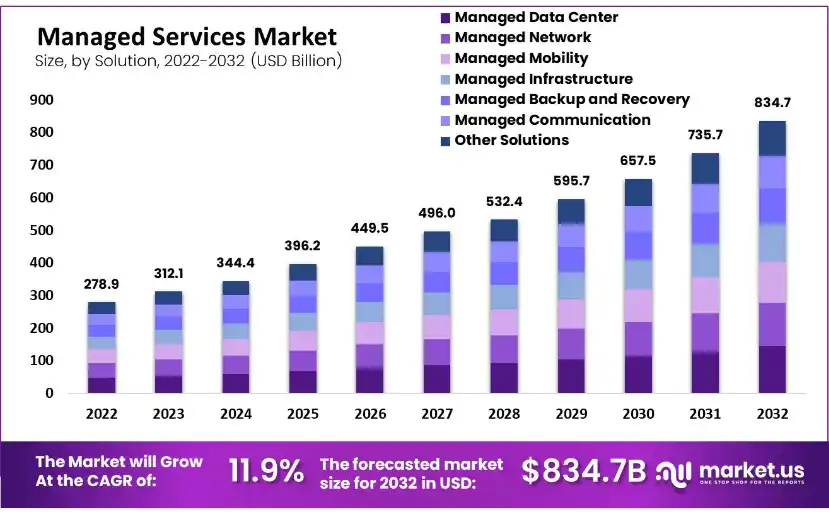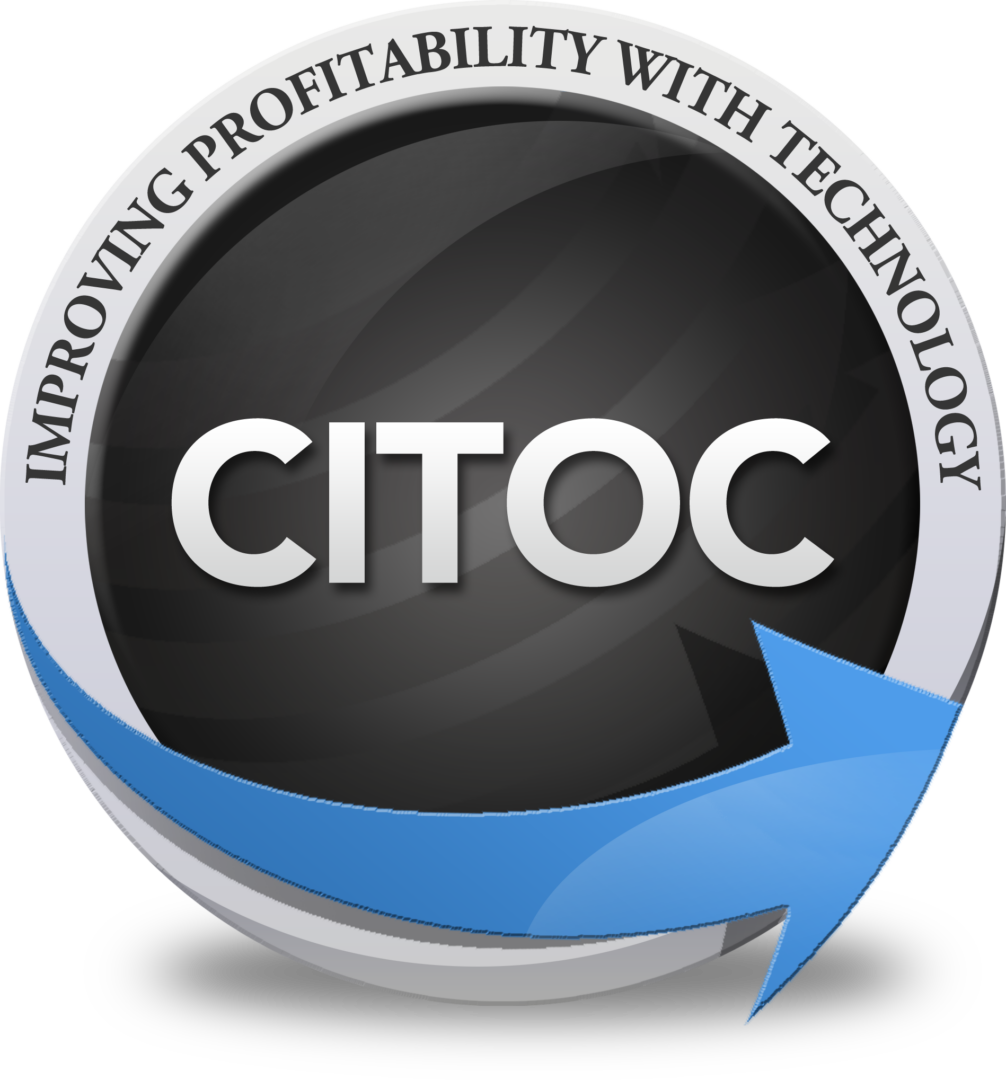When it comes to managing your IT infrastructure, you’re faced with two options: managed services vs. professional services.
Now, you might wonder, “What’s the real difference between the two?”
“Together, managed and professional services form a powerful synergy, ensuring our clients receive tailored solutions and unwavering support,” says David Grooms, Vice President at CITOC, Inc.
In this blog, we will uncover the key differences between managed services vs. professional services so you can decide on the best option for your business. With this knowledge in hand, you can confidently navigate the world of IT services and propel your business toward success!
Why Outsource Your IT Services?
In today’s rapidly advancing technological landscape, outsourcing IT services has become a strategic move for over 92% of businesses seeking to optimize their operations and focus on core competencies.
However, to make the most of this outsourcing opportunity, it’s crucial to understand the distinctions between managed IT services and professional IT services.
- Managed IT services provide ongoing monitoring and support, ensuring proactive maintenance and issue resolution.
- Professional IT services offer specialized expertise for specific projects or tasks, providing a targeted solution when needed.
Let’s explore the key differences between the two.
Managed Services vs. Professional Services: How Do They Differ?
Managed services play an increasingly important role in today’s business environment as a means of streamlining day-to-day IT operations. Research shows that the managed IT services market is expected to reach USD 74.2 billion by 2032.

Image Credit: Global Newswire
The comprehensive managed IT services approach typically includes:
- 24/7 monitoring
- Helpdesk support
- Proactive maintenance
- Network monitoring
- Data backup and recovery
- Cloud migration support
A managed services provider (MSP) is responsible for ensuring the smooth operation of your IT systems, allowing you to focus on core business activities.
On the other hand, professional IT services are project-based engagements that provide specialized expertise to address specific IT needs or challenges. This approach involves engaging with a team of IT professionals, often on a contractual basis, to work on specific projects or provide strategic guidance.
Professional IT services can include:
- Software development
- Hardware deployment
- System Integration
- Cybersecurity audits
- IT Consulting
- IT project management
Experience Our IT Services Risk-Free!
Learn more about our 30-day early termination option
Contact UsExploring the Key Differences: A Closer Look
1. Nature of Engagement
Managed services entails a long-term partnership with a managed services provider (MSP). The MSP assumes responsibility for the day-to-day management of IT systems, providing continuous support and maintenance.
Professional services, however, are more short-term or project-based engagements. They involve engaging IT professionals for specific projects or challenges with a defined timeline for completion.
2. Focus
Managed services has a proactive focus, aiming to ensure the stability, security, and efficiency of IT systems. The MSP monitors and maintains the infrastructure, taking preventative measures to avoid problems and minimize downtime.
Professional services, on the other hand, concentrates on delivering specialized skills and solutions for specific projects or challenges. The focus is on addressing the project’s unique requirements or providing strategic guidance.
3. Cost Structure
Assessing the financial framework is a critical exercise that cannot be overlooked. Take, for instance, managed services; they generally function on an agreeable cost structure, predominantly based on recurring monthly charges or subscription fees. This effectively translates into a constant and manageable IT support expense, making planning significantly more straightforward.
On the other hand, the pricing of professional services is typically a more dynamic proposition. They often come with a price tag that’s calibrated depending on each project’s scale or hourly requirements. This means the cost is tailor-made to fit the unique needs and scope of each undertaking, offering a degree of flexibility and scalability that’s quite appealing.
| Check out this additional resource to learn more about managed IT pricing! |
4. Service Level Targets (SLT)
Managed services are typically governed by a comprehensive SLT. The SLT outlines the agreed-upon services, response times, and performance metrics. It ensures transparency and accountability, setting expectations for both the MSP and you as a client.
Professional services may also have an SLT, but it is more project-focused. It outlines project deliverables, milestones, timelines, and specific requirements, ensuring clarity and alignment on the project’s objectives and outcomes.
Choosing the Best Option for Your Business Needs
By now, you’ve likely realized that the key distinction between managed services and professional services lies in the scope and nature of the services provided. While managed IT services offer ongoing support and management of your IT infrastructure, professional services focus on specific project-based tasks or specialized areas of expertise.
Choosing between the two will be entirely dependent on your unique business needs and factors such as:
- Your organization’s size
- IT requirements
- Budget
- The level of control and involvement you desire in managing your IT operations
| IT Services Near You: |
Entrust Your IT Services to CITOC
By partnering with CITOC, you can offload the burden of IT management and focus on your core business activities, knowing that your IT systems are in capable hands.

Our professional and managed services are designed to address your specific IT needs and challenges, bringing specialized expertise to projects such as security systems, hardware/software deployment, system integrations, or everyday operations such as IT support and infrastructure management.
With 30+ years of experience and a 30-day early termination option if we can’t fix your problem, you can be assured of our expertise! Contact us today to discuss your specific challenges and how we can help!

